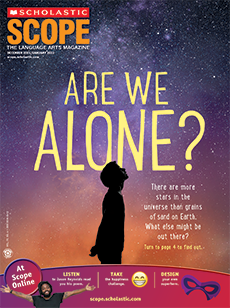Google “beat boredom,” and you’ll get more than 20 million hits. Clearly, humans don’t enjoy boredom.
So why are experts saying we need more of it? The answer has to do with the brain.
The human brain has a variety of “networks” that perform different tasks. Most of the time, your brain is using the “executive attention network” to deal with what’s happening around you. This network helps you listen to your teacher, catch a ball, and cross the street. It’s what you use to text, watch TV, and play video games.
When you have nothing to do, your brain shifts into a different network, called the “default mode.” In the default mode, your mind wanders. You may daydream, imagine your future, or think about what you’ve learned and experienced. The default mode helps you sort out your feelings about that fight you had with your brother, recall the joy of baking cookies with your grandma, or reflect on the novel you’re reading.
In other words, this brain network is all about introspection. It’s how we reflect on our experiences, manage our strengths and weaknesses, move on from mistakes, and make decisions about our futures.
Here’s the thing: Both networks are important—but they can’t be active at the same time. Your brain can’t be in default mode if your brain is constantly doing something—responding to that last text, beating that high score, watching that next episode. And if we don’t pause to use the introspective part of our brain, it can get out of shape.
“The problem is that we’re trying to un-bore ourselves with technology,” says Dr. Sandi Mann, author of the book The Science of Boredom.


